Leadership
H2NEW's national laboratory leadership provide broad expertise and experience to guide consortium research.
H2NEW Directors
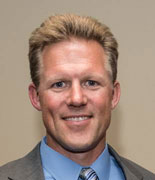
Bryan Pivovar, Director, Low-Temperature Electrolysis
Bryan Pivovar is a senior research fellow and group manager at the National Laboratory of the Rockies (NLR) in Golden, Colorado, where he oversees NLR's electrolysis and fuel cell R&D. He serves as low-temperature electrolysis director for H2NEW.
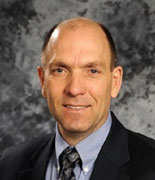
Richard Boardman, Director, High-Temperature Electrolysis
Richard Boardman is the fuel cell and hydrogen technology laboratory relationship manager at Idaho National Laboratory (INL) and oversees INL's Clean Energy Platform for Integrated Energy Systems development. He serves as high-temperature electrolysis director for H2NEW.
H2NEW Deputy Directors
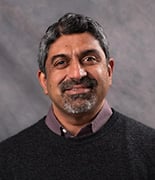
Rangachary Mukundan, Deputy Director, Low-Temperature Electrolysis—Durability and Accelerated Stress Test Development and Validation
Rangachary Mukundan (Mukund) is a senior scientist in the Energy Technology area at Lawrence Berkeley National Laboratory. His research interests include fuel cells, electrolyzers, flow batteries, and sensors. His current projects are focused on the durability of polymer electrolyte membrane electrolyzers and fuel cells.
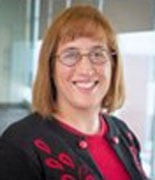
Deborah Myers, Deputy Director, Low-Temperature Electrolysis—Integration and Protocol Validation
Deborah Myers is a senior scientist and leader of the Hydrogen and Fuel Cell Materials group of Argonne National Laboratory's (ANL's) Chemical Sciences and Engineering Division. She serves as a deputy director of low-temperature electrolysis for H2NEW, focusing on the integration/performance task. She is also the deputy director for materials development in the Million Mile Fuel Cell Truck consortium and the co-director of the Electrocatalysis Consortium 2.0.
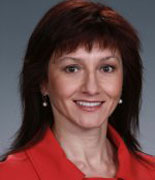
Olga Marina, Deputy Director, High-Temperature Electrolysis (HTE); Task Liaison—HTE Cell Fabrication and Testing
Olga Marina is a chief scientist in the Energy and Environment Division at Pacific Northwest National Laboratory (PNNL). Her research interests include solid oxide electrolyzers and fuel cells, durability and performance limitations, and testing and benchmarking cells and stacks for hydrogen and syngas production. She serves as a deputy director of high-temperature electrolysis for H2NEW and a task lead for cell fabrication and testing.
H2NEW Task/Lab Leads and Liaisons
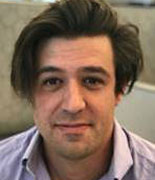
Shaun Alia, Task Liaison, Proton Exchange Membrane Water Electrolysis—Durability
Shaun Alia is a staff scientist in the Electrochemical Engineering and Materials Chemistry group at NLR. Within H2NEW, he is a task liaison for low-temperature electrolysis durability and has been active in the areas of in situ durability, diagnostics, and accelerated stress test development for H2@Scale and H2NEW.

Siddharth Komini Babu, Task Liaison, Proton Exchange Membrane Water Electrolysis—Durability
Siddharth Komini Babu (Sid) is a scientist in the Materials Synthesis and Integrated Devices group at Los Alamos National Laboratory. His research interest focuses on development of novel electrode architectures and durability of electrochemical devices including fuel cells, electrolyzers, unitized reversible fuel cells, and CO2 capture and conversion.
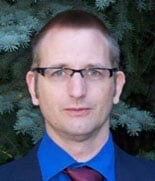
Guido Bender, Task Liaison, Proton Exchange Membrane Water Electrolysis—Performance and Protocol Validation
Guido Bender is a senior scientist at NLR, where he leads projects on water electrolysis and fuel cell related R&D, and also manages NLR's fuel cell and electrolysis testing capabilities, which includes testing on small-scale single cells to large-scale stacks.
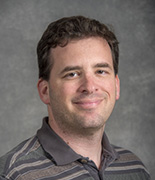
Adam Z. Weber, Task Liaison, Proton Exchange Membrane Water Electrolysis—Performance
Adam Z. Weber is a senior scientist and leader of Energy-Conversion at LBNL, co-director of the Million Mile Fuel Cell Truck consortium, and a co-deputy director of the HydroGEN consortium. His current research involves understanding and optimizing fuel cell and electrolyzer performance and lifetime.

Scott Mauger, Task Liaison, Proton Exchange Membrane Water Electrolysis—Scale-Up
Scott Mauger is a scientist in NLR's Process Science and Engineering group within the Chemistry and Nanoscience Center and director of the Roll-to-Roll Consortium. His research focuses on the science and engineering of roll-to-roll coating processes for manufacturing, including work on fuel cells and electrolyzers as part of DOE's Million Mile Fuel Cell Truck consortium and H2NEW.
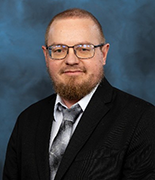
Alexey Serov, Task Liaison, Proton Exchange Membrane Water Electrolysis—Scale-Up; Liquid Alkaline Lab Lead—ORNL
Alexey Serov is a senior R&D staff member at Oak Ridge National Laboratory (ORNL), where he leads design, development, and manufacturing efforts for fuel cells and electrolyzers. He serves as a task liaison within H2NEW focusing on scaling up proton exchange membrane electrolysis and is also a lab lead for liquid alkaline electrolysis at ORNL.
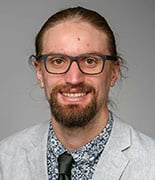
Alex Badgett, Task Liaison, Low-Temperature Electrolysis—Analysis
Alex Badgett works as a researcher in the Industrial Systems and Fuels group in NLR’s Strategic Energy Analysis Center. His work analyzes interfaces and opportunities between industrial systems and sustainable energy pathways, including electrochemical pathways to convert carbon dioxide into sustainable fuels or chemicals, generation of hydrogen via water electrolysis, and the generation of bioenergy and biofuels from organic wet wastes.
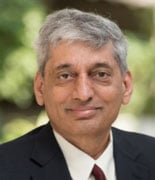
Rajesh Ahluwalia, Task Liaison, Low-Temperature Electrolysis—Analysis
Rajesh Ahluwalia is a senior engineer and a section manager at ANL, where he leads several projects on fuel cells for trucks, aviation, maritime, locomotives, and construction/mining. He is also a principal investigator of several projects on on-board hydrogen storage for light- and heavy-duty applications, liquid carriers for steel and renewable energy, and liquid hydrogen storage and transport.
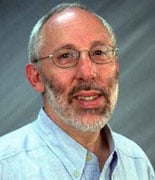
David Ginley, Task Liaison, High-Temperature Electrolysis—Characterization
David Ginley is a research fellow and chief scientist at NLR whose current research involves the general class of defective transition metal oxides including high temperature superconductors, LiTMO2 rechargeable Li battery materials, ferroelectric materials, transparent conducting oxides, and electrochromic materials. Within H2NEW, he serves as a task liaison for HTE characterization.
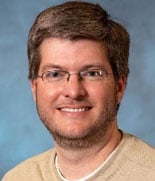
Brandon Wood, Task Liaison, High-Temperature Electrolysis—Modeling
Brandon Wood is associate program lead for Hydrogen and Computational Energy Materials and deputy director of the Laboratory for Energy Applications for the Future at Lawrence Livermore National Laboratory. He coordinates crosscutting modeling and simulation activities for hydrogen production and hydrogen storage within DOE's HydroGEN and HyMARC consortia, as well as for high-temperature electrolyzer development within H2NEW.

Harry Abernathy, Task Lead, High-Temperature Electrolysis—Modeling
Harry Abernathy is a materials scientist and solid oxide cell research group leader at National Energy Technology Laboratory (NETL). He is a liaison for the modeling of performance degradation of high temperature electrolyzers. His group at NETL focuses on the characterization, modeling, and mitigation of degradation of high temperature fuel cells and electrolyzers.
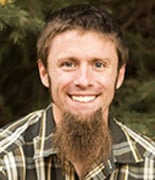
Micah Casteel, Task Lead, High-Temperature Electrolysis—Fabrication and Testing
Micah Casteel is a senior mechanical design engineer at INL involved in researching hydrogen and thermal systems. He specializes in solving problems that lie between classical engineering disciplines and the development of proof of concept.
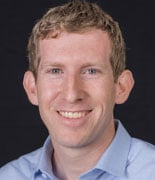
Mike Tucker, Task Lead, High-Temperature Electrolysis—Fabrication and Testing
Mike Tucker is a staff scientist at Lawrence Berkeley National Laboratory (LBNL) leading electrochemical device development and commercialization assessment. His lab develops electrochemical devices at all stages from inception to product prototyping. Current technical focus areas include metal-supported solid oxide fuel cells and solid oxide electrolysis cells as well as solid-state batteries.

Meital Shviro, Liquid Alkaline Lab Lead—NLR
Meital Shviro is a staff scientist in the Chemistry and Nanoscience Center at NLR. Within H2NEW, she is leading NLR activity in liquid alkaline electrolysis. Her research interest focuses on understanding electrochemical and degradation processes, materials integration, and optimization.

Sandip Maurya, Liquid Alkaline Lab Lead—LANL
Sandip Maurya is a staff scientist in the Materials Synthesis and Integrated Devices (MPA-11) group at Los Alamos National Laboratory (LANL). His current research involves the development of ionomers, membranes, electrodes, and their integration in fuel cells, electrolyzers, carbon dioxide to fuels and redox flow batteries.

Pietro Papa Lopes, Liquid Alkaline Lab Lead—ANL
Pietro Papa Lopes is an electrochemist scientist at the Materials Science Division, ANL. His research is dedicated to advancing electrochemical processes critical to sustainable energy conversion and storage technologies such as fuel cells, electrolyzers, and aqueous-based grid storage battery systems. His current focus is on understanding, at the fundamental level, a material’s structure-function-stability relationships, employing well-defined materials and interfaces to uncover degradation mechanisms to allow the development of regeneration strategies and recover material functionality.

Xiong Peng, Liquid Alkaline Lab Lead—LBNL
Xiong Peng is a research scientist at LBNL. Before LBNL, he was a senior scientist at Dexcom Inc. working on sensor electrochemistry. He completed his Ph.D. at the University of South Carolina in 2019 and postdoc also at LBNL. His research focuses on fundamental electrochemistry and material science to address device-level performance and durability challenges for electrolysis technologies.
